2023 Gold Dome Bill Tracker
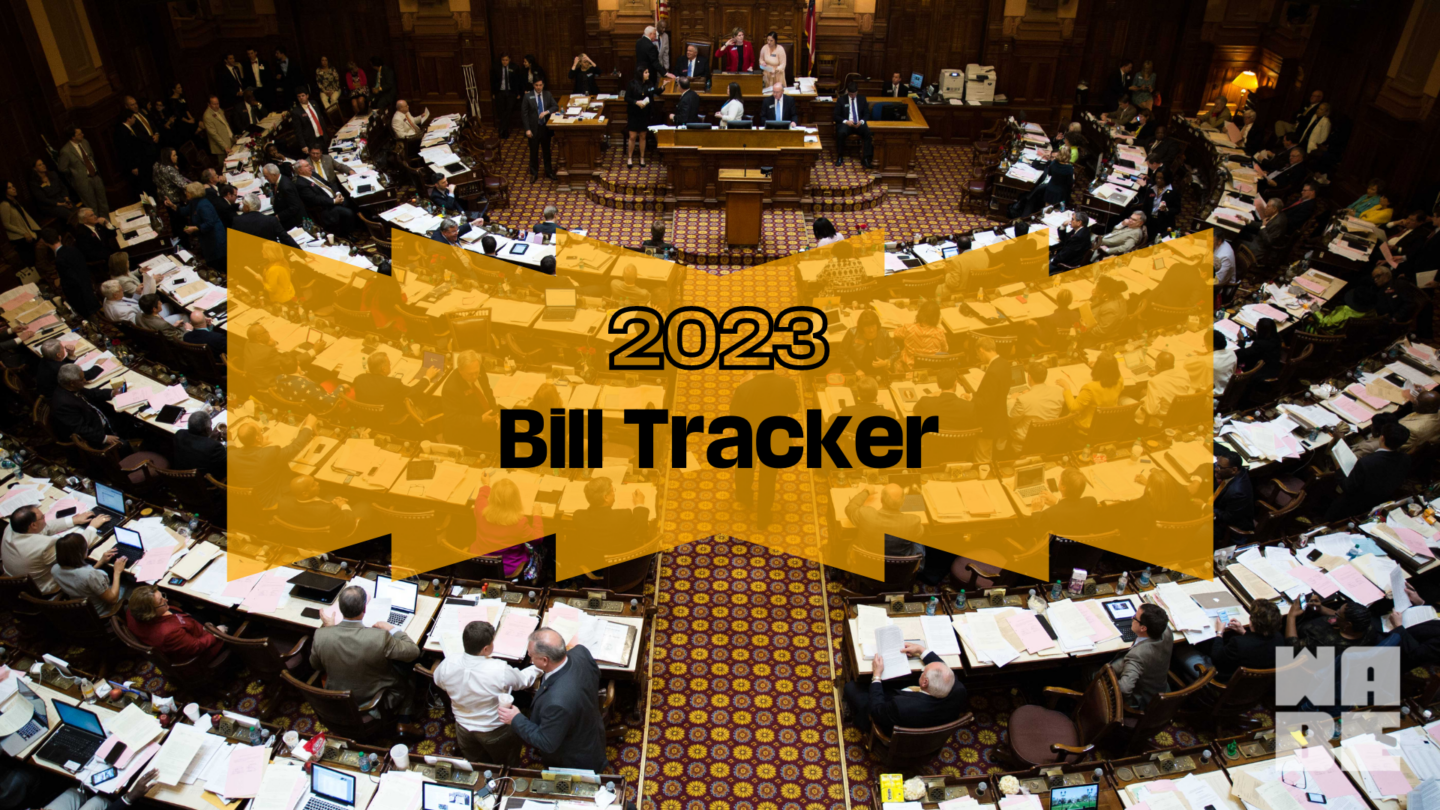
The Georgia General Assembly is in the midst of its 40-day session, which is scheduled to last until March 29. After a sluggish start, lawmakers are weighing hundreds of bills on everything from housing and schools to heavy trucks and taxes.
WABE Politics Reporters Rahul Bali and Sam Gringlas, as well as WABE Digital Editor Patrick Saunders, have a rundown of the top bills they’re watching and where they stand. A bill must pass in both the state House and Senate and be signed into law by Gov. Brian Kemp to become part of state law.
Check back for updates as the session goes on — we’ll do our best to keep this page updated as bills move and change. Legislation typically has to pass either the House or Senate by Crossover Day on March 6 to have a chance at becoming law. But sometimes, the text of one bill can be glued into another that’s already cleared one chamber, known as a vehicle.
We know this bill tracker list isn’t exhaustive. Hear about a bill you want to know more about? Let us know!
Last updated: Thursday, March 30 at 8:35 a.m.
Bill Status Key
- Passed
- Failed To Pass
- Under Consideration
Categories
Click a category name to jump to that section
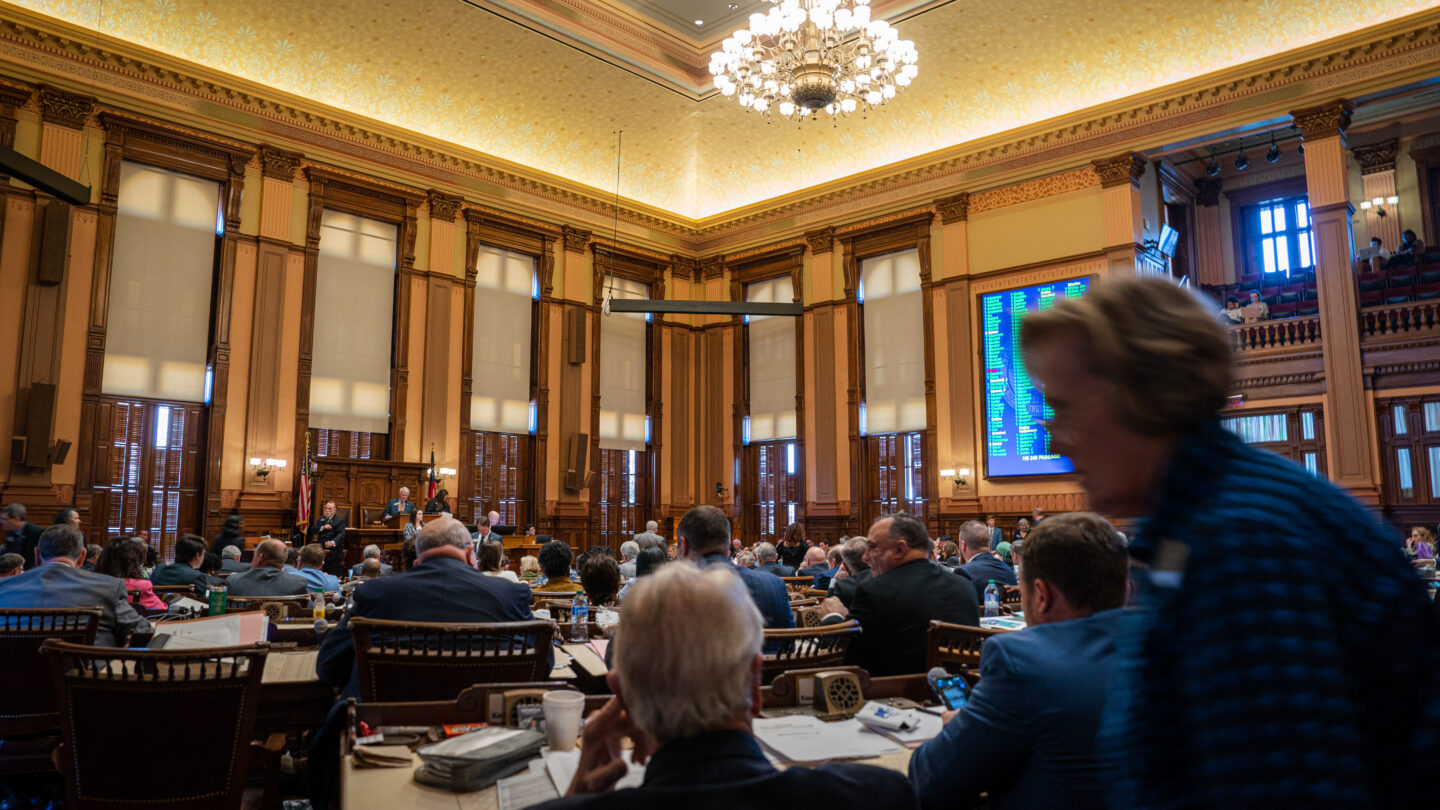
Budget
Amended Fiscal Year 2023 State Budget (HB 18)
Status: It has passed the House and Senate and Gov. Kemp signed the bill into law on March 10.
What would it do: The Fiscal Year 2023 State Budget went into effect July 1, 2022 and will fund the state government through June 30th.
Amending the budget allows the state to make midyear changes based on new data like school enrollment and the number of unfilled positions and projects not implemented.
The state is also running a more than $6 billion surplus, so the governor wants to spend some of that on one-time line items. He proposed deploying a billion dollars to pay for the gas tax suspension during most of last year. He’s also proposing a billion dollars in property tax relief and a billion in state income tax rebates.
The budget also includes grants to bolster school safety, fight pandemic learning loss and money to help classroom aides become certified as teachers.
Fiscal Year 2024 State Budget (HB 19)
Status: It passed the House on March 9 and passed the Senate on March 23, but significant disagreement remained between both chambers. Passing a budget is the one task that the legislature is constitutionally required to do each year. The budget passed both chambers by the last day of the legislative session.
What would it do: This is the budget that will fund the state government starting July 1st of this year.
The governor’s budget proposal includes a $2,000 pay raise for teachers, money to fund more workforce housing in rural areas and funding to expand the HOPE Scholarship.
What supporters say: “The most valuable in-demand resource in our state right now is our people,” Kemp told lawmakers during a budget presentation. “We need to keep them, and the pipeline of skilled workers, wide open to keep up with that demand.”
What opponents say: Democrats say the state should put its multi-billion dollar surplus to use – starting by fully expanding Medicaid.
Learn more here.
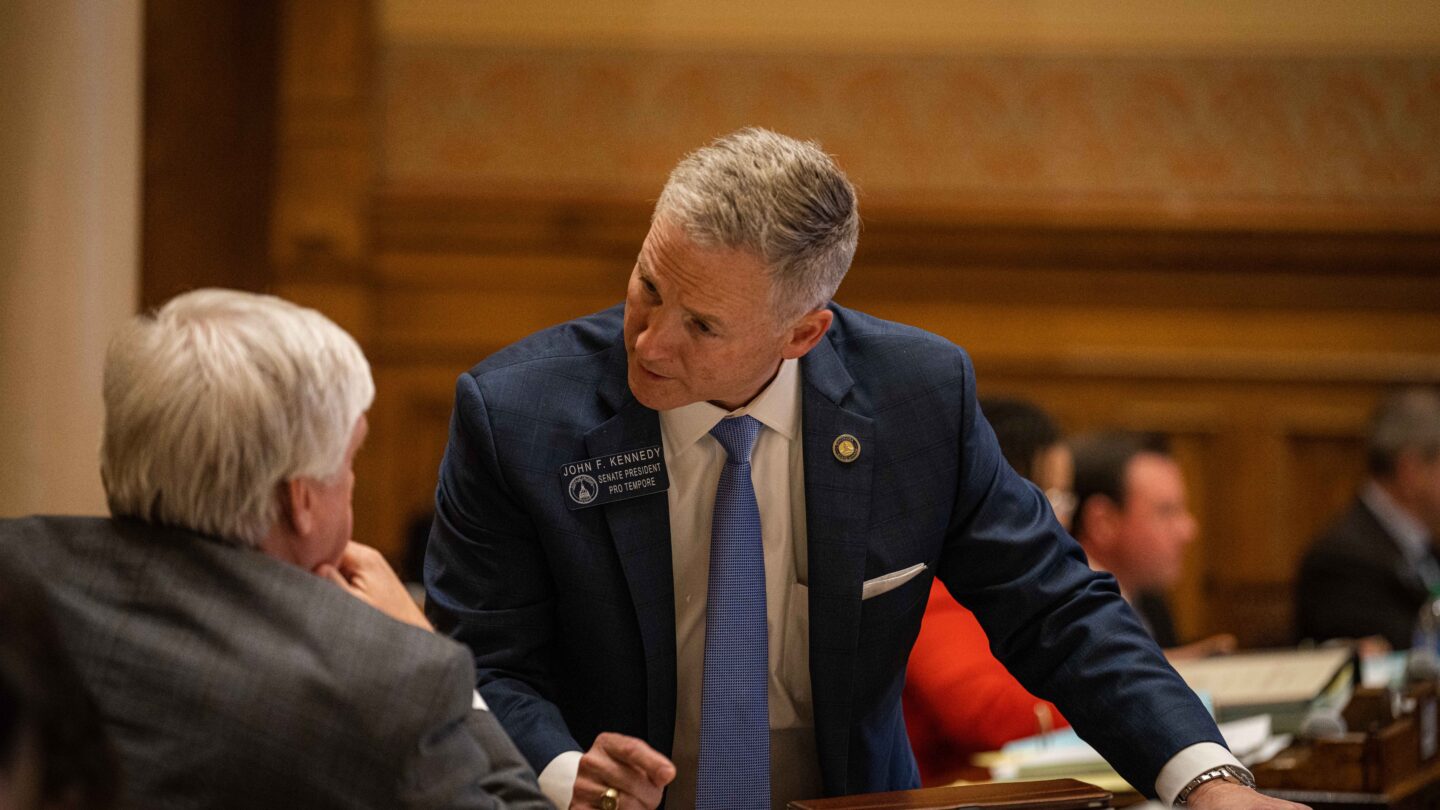
Criminal Justice
Define Antisemitism (HB 30)
Status: The bill passed the House on March 6, but was tabled in the Senate Judiciary Committee on March 20 after the committee voted to strip the bill of the IHRA definition and codify a slightly different one. But a Senate committee gave the measure new life on March 23 by inserting its language into House Bill 144, a child welfare measure that passed the House on March 2. The bill ultimately failed to advance before the last day of the legislative session.
What would it do: The bill provides a definition of antisemitism for the state to use when evaluating violations of anti-discrimination laws or weighing hate crime charges.
The legislation uses a working definition adopted by a non-governmental organization called the International Holocaust Remembrance Alliance.
What supporters say: The bipartisan bill is sponsored by Republican state Rep. John Carson and Democratic state Rep. Esther Panitch, the lone Jewish member of the General Assembly. Antisemitic incidents are on the rise, and supporters say the definition will help the state better identify crimes targeting Jews, a group that doesn’t easily fit into categories of race, ethnicity, religion or national origin.
They say the definition does not limit free speech because the definition would only come into play when trying to determine the intent behind a crime. And they point out that the definition is used by many government agencies, like the U.S. State Department.
What opponents say: Critics are specifically concerned with a list of examples provided along with the IHRA definition, which includes broadly accepted examples of antisemitism, like “calling for, aiding or justifying the killing or harming of Jews,” but also more contested bullet points, like “claiming that the existence of a State of Israel is a racist endeavor.”
Opponents worry that linking these examples to state law would result in people feeling less free to voice their opinions on Israel. Others say it’s not fair that crimes targeting Jewish people get their own section in the state code when they’re already covered by the state hate crimes law, along with other groups.
Learn more here.
Mandatory Minimums for Gang-Related Crimes (SB 44)
Status: SB44 passed the Senate on the final day of the 2023 legislative session. It now goes to Gov. Kemp for his signature.
What would it do: Gang-related crimes would trigger an extra five years in prison at minimum and judges would have far less leeway to convert some of that time into parole.
The bill also toughens sentences for people who involve someone under 18 or with a disability in a gang-related crime. That would carry a mandatory minimum of 10 years.
What supporters say: Statistics show some violent crime is up in Georgia since the start of the pandemic. The Georgia Bureau of Investigation says the number of gang-related cases they’re working has grown.
“The governor’s office wants to send a strong message to gang members,” says Republican Sen. Bo Hatchett. “If you come after our children and endanger our communities, we will come after you.”
What opponents say: Proponents of criminal justice reform have urged lawmakers to move away from mandatory minimums, saying they don’t do much to deter crime. Georgia already has one of the highest incarceration rates in the country and the state’s prison population is disproportionately Black.
“High incarceration rates are not a rational response to high crime rates, but they are a politically expedient response to fear,” Mazie Lynn Guertin with Georgia Association of Criminal Defense Lawyers, told lawmakers.
Learn more here.
Stricter Bail Rules (SB 63)
Status: SB 63 passed the Senate on Feb. 23 and passed the House on March 29, the final day of the session. But the House and Senate could not agree on a final version, and the measure failed to pass as the 2023 session.
What would it do: Some offenses, like murder and rape, already require the accused post bail before they’re released to await trial. This bill would expand that list of offenses to include more misdemeanors and more than 30 new charges, like forgery, theft and criminal trespass.
What supporters say: Republicans like Lieutenant Governor Burt Jones say requiring bail in more cases is a top priority and key to their broader pledge to crack down on violent crime.
What opponents say: Advocates for criminal justice reform say the bail system perpetuates inequality. In 2018, Republican Governor Nathan Deal signed a sweeping criminal justice reform package, including a requirement that judges consider the income and assets of the accused when setting bail.
Learn more here.
District Attorneys (Multiple Bills)
Status: SB 92 passed the Senate on March 2 and the House on March 27. It now goes to Gov. Kemp’s desk for his signature. SB 31 passed the Senate and HB 231 has passed the House. HB 229 and HB 48 failed to advance in the House before Crossover Day.
What would they do: Two bills (SB92 and HB 231) would create a new Prosecuting Attorneys Oversight Commission that could discipline or remove a prosecutor. Other bills make it easier to recall prosecutors (HB 229), make district attorney and solicitor general elections nonpartisan (HB 48) and require DAs to compensate the state for criminal cases taken over by the state attorney general (SB 31).
What supporters say: Republican lawmakers have criticized how some prosecutors are handling criminal cases, including being too lenient on bail.
They have also slammed prosecutors for not saying they would not prioritize pursuing cases related to abortion and low-level marijuana possession.
What opponents say: “This bill is dangerous,” says Fulton County District Attorney Fani Willis, a Democrat. “It is dangerous to undo the voters because you don’t like someone and you don’t like their policies and you don’t like what they do. If they do something that is illegal you can certainly hold them responsible.”
Learn more here.
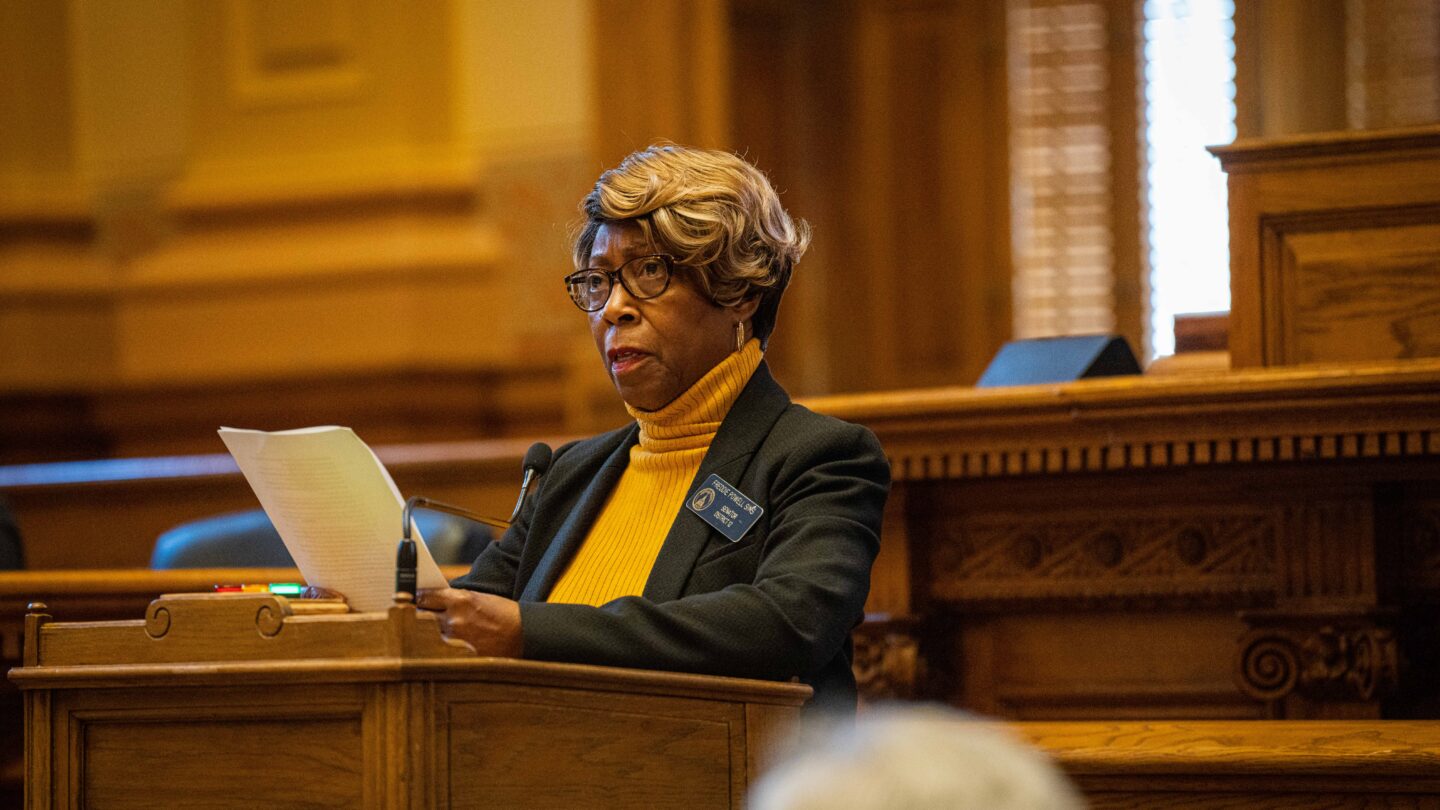
Education
Restricting Classroom Discussions on Sexuality and Gender Identity (SB 88)
Status: Tabled in Senate committee and failed to pass in that chamber before Crossover Day, so it will not advance.
What would it do: This bill as originally written would restrict teachers, librarians, school staff, coaches, camp counselors and others from talking with kids under age 16 about sexual orientation or gender identity without permission from a parent or guardian. It’s since been watered down.
The bill is being compared with Florida’s so-called “Don’t Say Gay” legislation, which prohibits any classroom instruction on sexual education or gender identity in kindergarten through third grade.
What supporters say: Tom Rawlings, formerly with the Division of Family and Children Services, says he’s concerned children may begin a gender transition without parents knowing.
“We simply want to make sure that in appropriate cases, that parents know what’s going on with their children,” he says.
What opponents say: The ACLU says the bill as originally written was likely unconstitutional. Students protesting the bill say it would take away their ability to discuss sexual orientation or gender with trusted adults at school.
“Love and acceptance is so important for a student’s growth,” says Georgia State student Sa’Real McRae. “We know that LGBTQ students already have high suicide rates, and if I wasn’t able to talk to my teachers or counselors about these issues, that would have just pushed me further into a bad mental state.”
Learn more here.
Remove School Librarians’ Protections (SB 154)
Status: It failed to pass in the Senate before Crossover Day, so it will not advance.
What would it do: Current state law keeps public librarians and librarians at any school, college or university from being prosecuted for sharing any materials deemed “harmful to minors.” This bill would remove school librarians from that exemption.
Most school library books that have been accused of being obscene in recent years deal with sexual orientation, gender identity or race.
What supporters say: Sen. Greg Dolezal, who introduced the bill, said its intent is to “protect children” and not ban all books and arrest all librarians.
What opponents say: The Georgia Library Media Association says that librarians are just following their district policies and that students would suffer if this measure passes.
“Threatening school librarians with significant fines and jail time of up to 12 months for following their school district policies and professional ethics would create an untenable position for these educators,” the association said in a statement.
Learn more here.
Establish School Voucher Program (SB 233)
Status: SB 233 was defeated in the House by a slim margin the second time supporters brought it to the floor. A motion to reconsider passed, but ultimately the bill was not called for another vote and will not advance.
What would it do: The bill would make available a $6,500 per year voucher for some Georgia public school students to enroll in a private school. Parents could also use the money for tutoring or therapy. The money would only be available to students currently attending a school deemed by the state to be in the bottom quarter of Georgia schools.
What supporters say: Supporters say parents should have the option to enroll their children in the school of their choice, particularly when their local public school isn’t equipped to meet their needs.
What opponents say: Opponents say public tax dollars should not be diverted away from public schools — especially struggling schools that need all the help they can get. Some lawmakers from more rural districts have also raised concerns about kids who don’t have private schools within reach and wouldn’t be able to use the funds.
Learn more here.
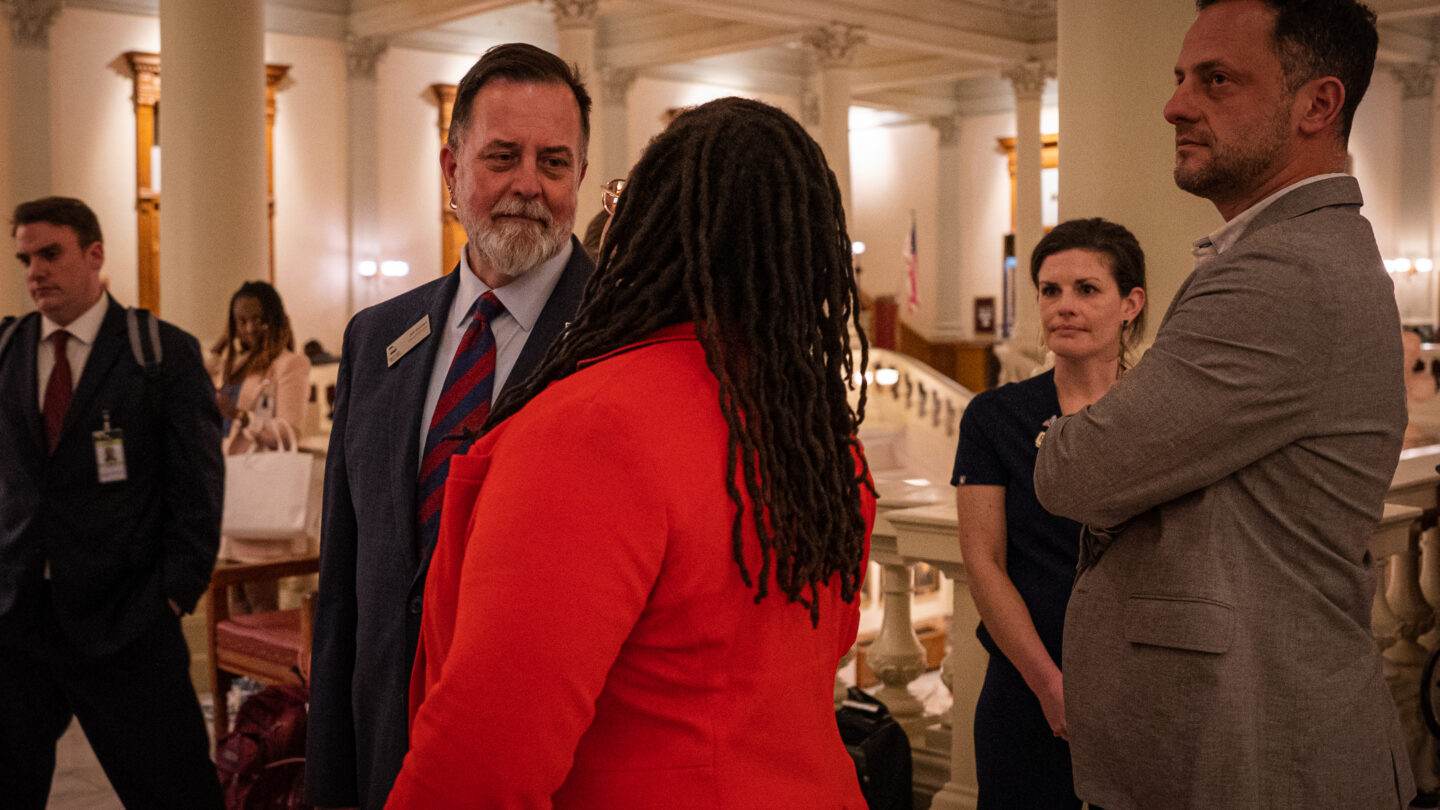
Health
Expand TANF Benefits to Pregnant People (HB 129)
Status: HB 129 passed the House and Senate and now goes to Gov. Kemp’s desk for his signature.
What would it do: The bill would make pregnant women eligible for the existing Temporary Assistance for Needy Families program. It’s currently available to families with children. To qualify, families have to meet strict income limits and weekly work requirements.
What supporters say: “Anytime that we can help pregnant women get a little help from this program and a little more help from that program, we’re on a step in the right direction,” says Republican Rep. Sharon Cooper.
What opponents say: This bill passed the House unanimously, but Democrats have criticized Republican leadership for not going farther to fully expand Medicaid for more low-income people.
Learn more here.
Mental Health Reform (HB 520)
Status: Democratic Rep. Mary Margaret Oliver acknowledged the mental health bill stalled in the Senate and won’t be heading for the governor’s desk this year. A small slice of the bill focused on data sharing between state agencies was inserted into SB 23, which passed both chambers and now goes to the governor.
What would it do: This bill follows the sweeping mental health care overhaul signed into law last session. HB 520 would bolster the mental health care workforce by expanding a student loan forgiveness program passed last year and streamline some licensing requirements.
It would also establish a pilot program to address so-called “familiar faces” who cycle between homelessness, the criminal justice system and the emergency room. The bill would convene a study on Georgia’s shortage of beds for in-patient care and includes provisions to facilitate more data sharing between state agencies.
What supporters say: The bill is expected to pass with bipartisan support and has earned the endorsement of several mental health advocacy groups, including Georgia’s chapter of the National Alliance on Mental Illness.
What opponents say: If anything, many advocates and lawmakers say this bill is an important step, but more work is needed to bring Georgia’s mental health care on par with other states. Georgia’s reimbursement rates are still lower than many neighboring states. Some advocates say access to health coverage more broadly is critical and say Medicaid expansion is needed.
Learn more here.
Care for Transgender Children (SB 140/141)
Status: SB 140 passed the Senate on March 6 and passed the House on March 16. The Senate passed the House’s amended version on March 21 and Gov. Kemp signed it into law on March 23. SB 141 failed to pass the Senate before Crossover Day.
What would it do: These bills would ban health care providers from giving certain medical treatments to help these children affirm their gender identity. SB 140 would ban gender-affirming surgery and hormone replacement therapy for minors. SB 141 would also ban puberty blockers, which delay puberty.
What supporters say: “Young Georgians electing for surgeries.. below the age of 18 when they can’t join the army, they can’t buy alcohol, there’s a lot of things they can’t do before they’re of age and this is definitely one of them,” says GOP State Sen. Clint Dixon.
Some medical researchers say more research is still needed to fully understand the outcomes of prescribing these drugs to adolescents.
What opponents say: The American Academy of Pediatrics guidance recommends that doctors provide children with “comprehensive gender-affirming and developmentally appropriate health care.”
A 2021 study by the Trevor Project found that trans youth who received hormone therapy had lower rates of depression and suicide attempts than those who did not.
“If a family and their physician are comfortable administering treatment, why on earth does the state need to be involved?” asked parent Jen Slipakoff at a hearing. “Why don’t you trust parents of families like mine?”
Learn more here.
Expand Medicaid for HIV Patients (HB 226)
Status: HB 226 failed to pass the House before Crossover Day, so it will not advance.
What would it do: The bill would expand Medicaid coverage to low-income people with H-I-V.
Georgia is one of 11 states that hasn’t expanded Medicaid to cover everyone making less than 138% of the federal poverty level. Medicaid coverage is only available in Georgia for low-income people in specific categories, like children or people with disabilities.
A bill to add people with HIV to that list advanced last year, but never became law.
What supporters say: The bill’s sponsor, Republican Sharon Cooper, says the coverage would help more people manage HIV, so it doesn’t lead to AIDS. She notes that AIDS is more costly to treat, easily transmissible and can result in many health complications.
What opponents say: While supportive of the bill, Democrats say the state should expand Medicaid in full, rather than the piecemeal approach taken by Republican leadership.
Learn more here.
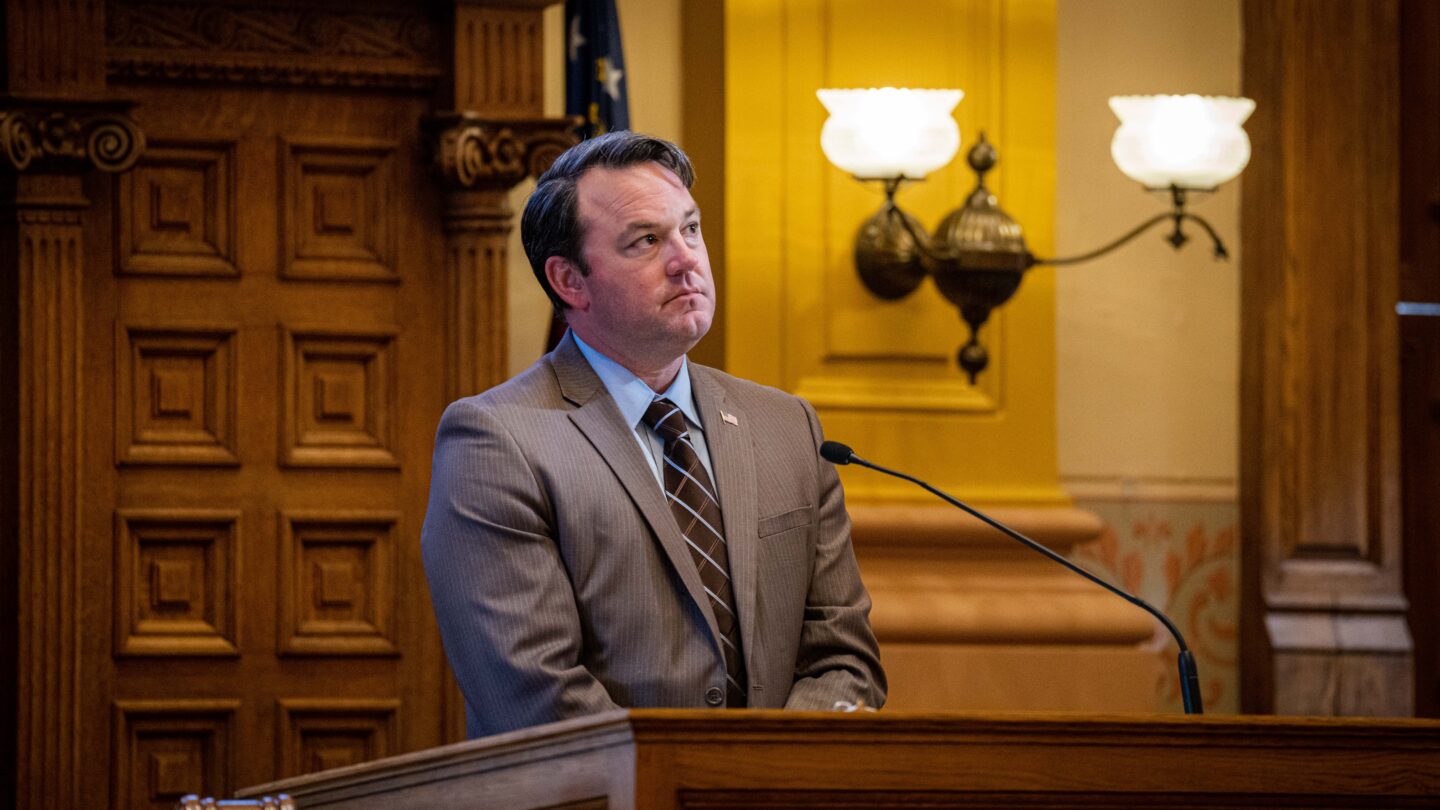
Housing
Tenant Protections (HB 404)
Status: HB 404 passed the House on March 2 and passed out of a Senate committee on March 20. It never got a vote in the Senate.
What would it do: HB 404 establishes some basic protections for renters.
The bill (1) caps security deposits at two times the monthly rent, (2) prevents landlords from cutting off air conditioning during an eviction process, (3) requires a three-day grace period to pay rent to avoid eviction, and (4) establishes standards of livability for a home or apartment.
What supporters say: Georgia has some of the least robust protections for tenants in the country. Recent reporting from the Atlanta-Journal Constitution highlighted the difficulties many renters face and sparked momentum at the Capitol to take some action.
This bill is notable in that it is sponsored by a Republican and has the backing of powerful House Speaker Jon Burns.
What opponents say: The bill passed the House unanimously, but tenant rights advocates say the statehouse needs to do much more to protect renters.
Learn more here.
Regulate Investor-Owned Housing (HB 490)
Status: HB 490 failed to pass the House before Crossover Day, so it will not advance.
What would it do: This bill would eliminate the tax write off on the depreciation of homes owned by corporations.
What supporters say: A recent investigation by the Atlanta Journal-Constitution highlighted the explosion of investor-owned single family housing in Metro Atlanta, driving up the cost of buying a home especially in minority neighborhoods.
“By changing the tax code to remove the depreciation in their state taxes, we would disincentivize hedge funds from wanting to invest in Georgia like they have been over the past decade,” says Democratic State Rep. Spencer Frye.
What opponents say: Some critics say this bill wouldn’t do enough to cut down on this practice, especially in a housing market when housing prices are usually going up.
Learn more here.
Restrictions on Local Zoning Ordinances (HB 514 and 517)
Status: HB 514 passed the House on March 6 and an amended version passed the Senate on March 29. It now goes back to the House for final approval. HB 517 failed to pass the House before Crossover Day, so it will not advance.
What would it do: These bills limit local governments from enacting certain building restrictions. For example, under the bill local governments would not be able to limit the use of vinyl siding.
“Our bill will not allow a prohibition on creation of a minimum square footage above 1200 square feet,” says Republican Rep. Dale Washburn. “It will not allow them to require garages. It will not allow them to require certain types of external siding. In other words, won’t allow them to prohibit vinyl siding.”
What supporters say: Lawmakers have pledged to expand affordable housing options, especially workforce housing for people like nurses, teachers and firefighters, as housing costs skyrocket. The theory is that curbing zoning restrictions like minimum lot sizes would bring down the cost of housing and allow for more duplexes and townhouses to serve the “missing middle.”
What opponents say: Local governments have pushed back forcefully, arguing that regulating home standards is the role of city and county governments and they should get to decide the types of homes that get built in their communities.
Learn more here.
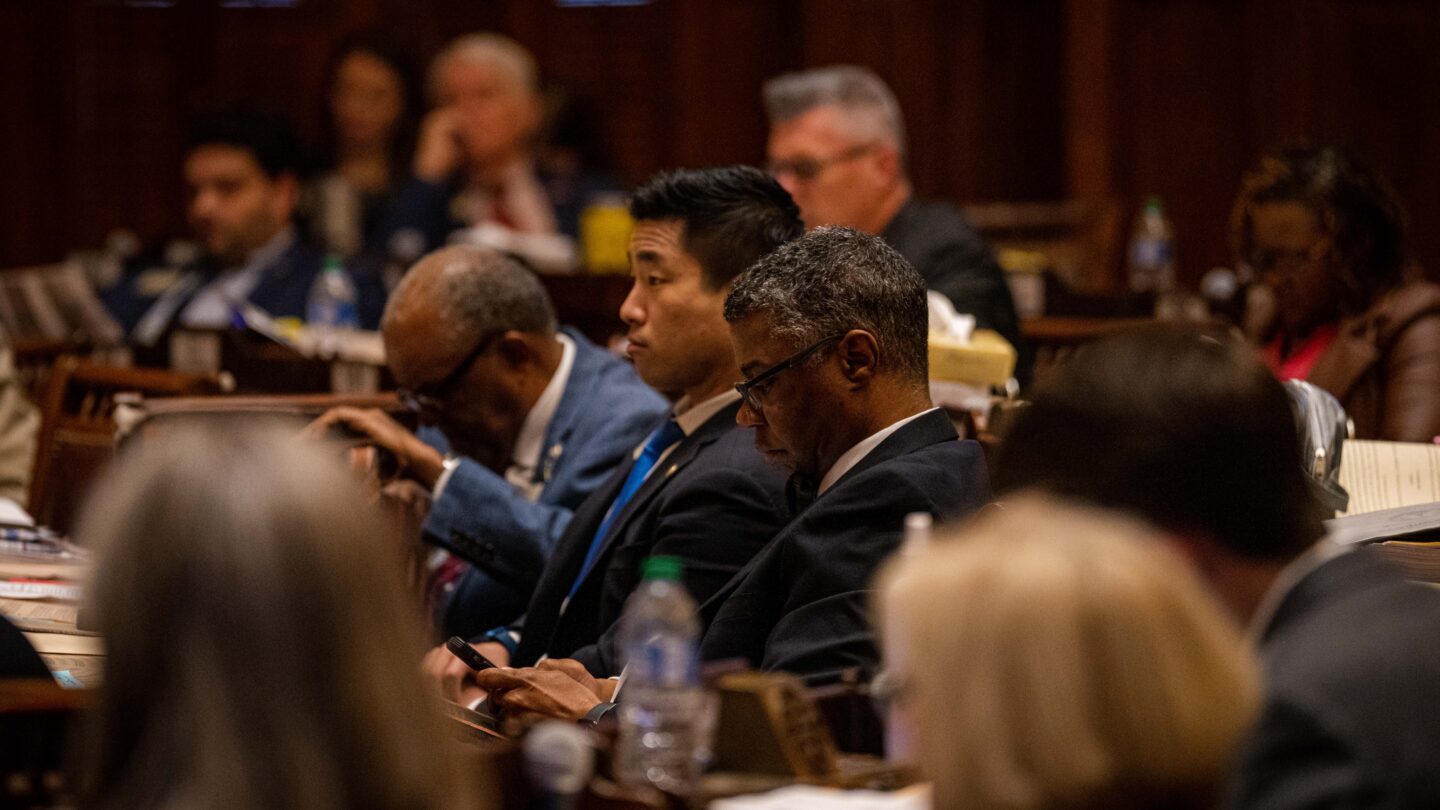
Miscellaneous
Online Sports Betting (HB 380/HB 237)
Status: HB 380 failed to pass the House before Crossover Day, but language from the bill was inserted into HB 237 on March 16, an unrelated measure that would designate the Southeast Soap Box Derby in Lyons as the state’s official soap box derby. The newly amended bill already passed the House but never got a vote in the Senate.
What would it do: While several different gambling bills are moving through the House and Senate, HB 380 is the most notable. It only deals with online sports betting on a mobile device like a smartphone and does not allow kiosks in retail locations or sports venues and does not legalize betting on horse racing.
In the latest version, the state would take a 25% cut from online sports betting. The Georgia Lottery would regulate the betters, meaning any money would only go to Lottery-funded programs like HOPE and Pre-K.
What supporters say: Supporters, including Atlanta sports teams, say online sports betting is already happening in Georgia and the state is missing out on potential tax revenue. Georgia House Speaker Jon Burns recently said he does not expect to move forward with casino gambling or horse racing this year, so that would effectively narrow the viable options to online sports betting only.
What opponents say: Some opponents are concerned about the social impacts on families and communities, such as gambling addiction, of any expansion of gambling. Separately, some supporters and opponents of gambling believe that any expansion of gambling, including online sports betting, requires a voter-approved constitutional amendment.
Learn more here.
Buckhead Cityhood (SB 113 and SB 114)
Status: SB 113 and 114 failed to pass the Senate before Crossover Day. Leaders of the movement said that there is “no path forward” for Buckhead cityhood while Gov. Kemp is in office.
What would it do: Senate Bill 114 would allow Buckhead residents to vote on whether to separate from the City of Atlanta and create the City of Buckhead City.
What supporters say: Buckhead City should get a vote like other cityhood movements. Supporters have focused on specific incidents of violent crime and police response times.
What opponents say: Opponents argue that Buckhead seceding from Atlanta is very different from other recent cityhood movements. Places like East Cobb, South Fulton, Vinings and Mableton are cities carved out of unincorporated counties.
Buckhead City would create a city out of an existing one, opening up a whole different set of financial and legal issues – including around the future of Atlanta Public School students. Cityhood is vehemently opposed by Buckhead’s legislative delegation at the state capitol and Atlanta Mayor Andre Dickens.
Read more here.
Elections (SB 221 and SB 222)
Status: SB 221 failed to pass the Senate before Crossover Day, so it will not advance unless the bill text is inserted into another bill. SB 222 passed the Senate on March 2, the House passed an amended version on March 28 and the Senate passed it on the final day of the legislative session. It now goes to Gov. Kemp’s desk for his signature.
What would it do: SB 221 would make it easier in some ways for individuals to challenge the eligibility of an unlimited number of voters. Under the bill, a voter’s name appearing in the National Change of Address registry would be considered sufficient evidence to sustain a voter challenge. It would also eliminate ballot drop boxes across the state of Georgia. The bill cleans up some other gaps in state election law, which are backed by the Secretary of State’s office and many election officials.
SB 222 prohibits local election offices, which are often underfunded, from accepting grant money to help run elections.
Another bill, SB 129, allows for employees to take time off from work to vote during early voting. It also incorporates some language requested by the secretary of state’s office to fill gaps in existing election law. That bill has passed both chambers with bipartisan support and now heads to the governor’s desk.
What supporters say: Republicans have introduced an onslaught of bills targeting voter fraud since the 2020 election, despite there being no evidence of widespread voter fraud in Georgia.
The Secretary of State’s office, which raised concerns with provisions on mass voter challenges and drop boxes, says some other components would help clean up some existing gaps in state election law.
What opponents say: Election officials have been hamstrung by tens of thousands of mass voter challenges and say relying on the National Change of Address registry alone is unreliable, will disproportionately wrap up voters who move frequently, like low-income and young voters, and may violate federal election law.
“This bill completely undermines the voter challenge system by lowering the system for mass challenges, which have been used to disenfranchise voters,” says Karli Swift, a member of the DeKalb County election board. “In Dekalb, we received over 1600 challenges, none of which was found to have merit.”
Read more here.
Extending Federal Religious Protections (SB 180)
Status: SB 180 failed to pass the Senate before Crossover Day, so it will not advance.
What would it do: This bill would extend federal religious protections passed in 1993 to the state and local level, reviving a once-ubiquitous Gold Dome debate that had been dormant in recent years. This type of legislation is known as RFRA, or the Religious Freedom Restoration Act.
What supporters say: State Sen. Greg Dolezal, the sponsor of the measure, cited pandemic-era tensions between public health restrictions and the ability of people to attend church services as his motivation for resurrecting the debate over whether greater religious protections are needed in Georgia.
“The intention is to do something that’s very basic, very conventional and should, as a matter of law, be noncontroversial – adopting the same protections that we have at the federal level and applying in the state and local government,” Setzler says.
What opponents say: Setzler’s proposal was immediately met with concerns that it would justify discrimination, particularly against members of the LGBTQ community.
“While we can all agree that freedom of religion is a cornerstone of our beliefs, it is imperative that in an effort to protect religion that we do not create a license to discriminate,” says Jeff Graham, executive director of Georgia Equality, a statewide LGBTQ rights group.
Graham said that instead the state should pass a comprehensive civil rights law for “all Georgians who fear discrimination because of who they are, who they love or how they pray.”
Learn more here.
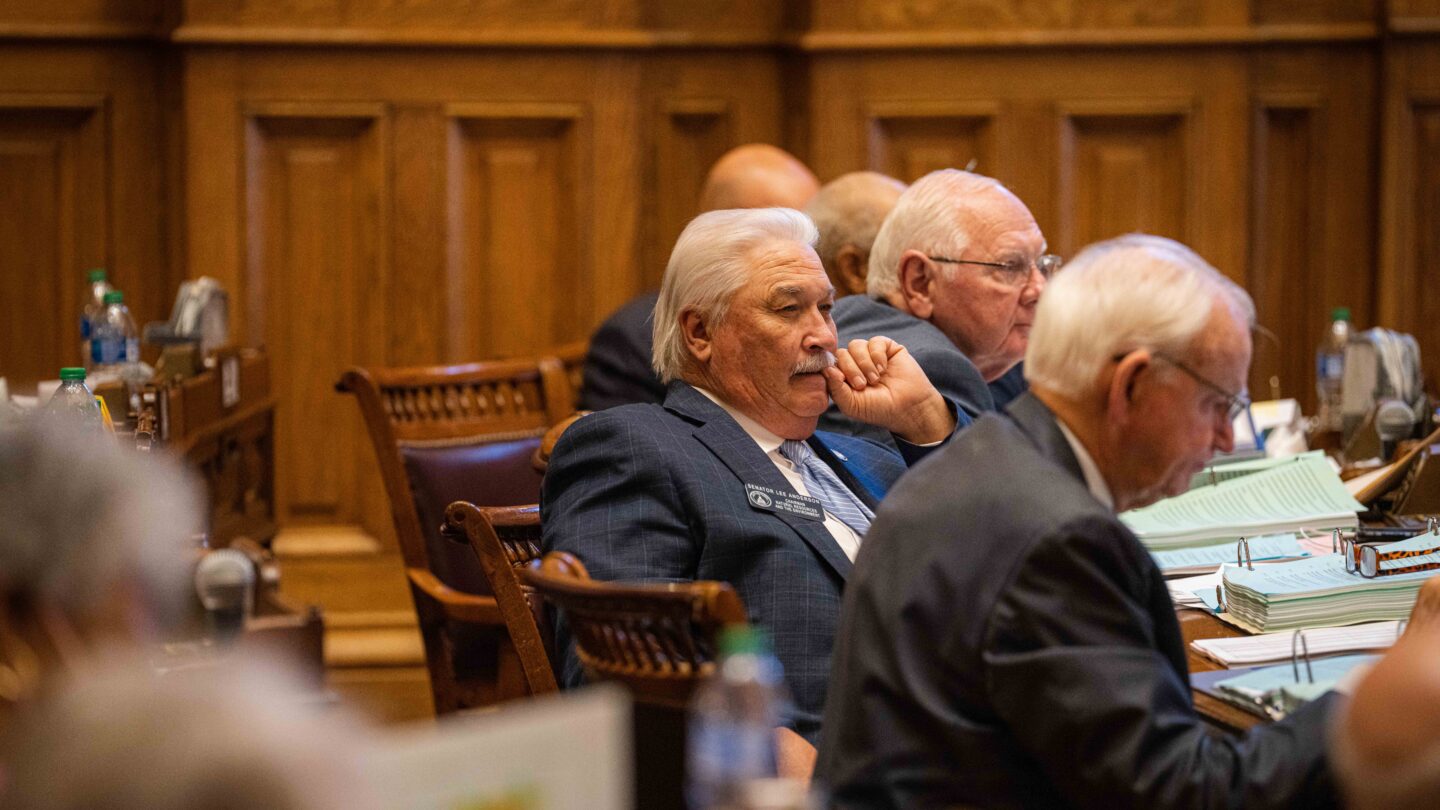
Transportation
Heavy Trucks (HB 189)
Status: HB 189 passed the House on March 6 and passed the Senate on March 23. Then it went to a conference committee because the House and Senate disagreed on amendments made to the measure. The bill passed the House and Senate on the last day of the legislative session and now goes to Gov. Kemp for his signature.
What would it do: This legislation would allow agricultural and timber trucks on state, city and county roads to be up to 4,000 pounds heavier – moving the limit from 84,000 to 88,000 pounds. But the bill has a clause that does not allow trucks with such heavier weight in Atlanta.
What supporters say: Supporters argue that heavier individual loads will mean fewer trips, leading to less wear and tear on roads and lower environmental impact. Supporters also mentioned Georgia’s business competitiveness and the shortage of truck drivers.
“There are two factors to consider,” says Mike Giles with the Georgia Poultry Federation. “One is your capacity. It’s almost like bandwidth with the internet and the other is time. How much goods can you deliver in a given amount of time with the capacity that you have?”
What opponents say: Opponents argue upping the limit will increase stopping distances and say there would be exponentially more wear on bridges and pavement.
State Department of Transportation Commissioner Russell McMurry says that would cost the state and local governments billions.
“The simple fact is our bridges in the state are not designed to hold this additional weight,” he says. “In fact, about 97% of the bridges in Georgia are designed to hold 80,000 pounds or less and especially on the county roads.”
Learn more here.
Electric Vehicles (HB 406 and SB 146)
Status: HB 406 passed the House on March 1 and now goes to the Senate. SB 146 passed the Senate on March 6 and the House on March 27. It now goes to Gov. Kemp’s desk for his signature.
What would it do: When an EV owner plugs their car into a public charging station right now, they pay based on how long they’re plugged in. If HB 406 or SB 146 pass, EV drivers would pay for the amount of power they use – like paying for gas by the gallon.
The Department of Transportation relies on gas taxes for funding, so this bill also paves the way for eventually establishing a tax on the electricity sold at EV-charging stations. The bill would also include a new fee of about 2.84 cents per kilowatt hour at public charging stations to replace lost gas tax revenue.
Several other EV-related bills have also been introduced this session.
What supporters say: Supporters of the EV industry say this is an important step forward that would make driving EVs simpler and more fair.
What opponents say: EV owners already pay an annual fee. “Further taxing EV drivers, you know, is punitive,” says Anne Blair with the electrification coalition. “And we would want to see that, you know, pushed out and some equality put in place.”
Convenience store owners who want to offer charging stations also worry about being able to compete with utilities like Georgia Power.
“There’s nothing to require [Georgia Power] to charge the same rate as a producer, distributor, and now a retailer,” Angela Holland of the Georgia Association of Convenience Stores, told lawmakers. “So will we be able to compete?”
Learn more here.
WABE’s Emily Jones and Jess Mador contributed reporting.
